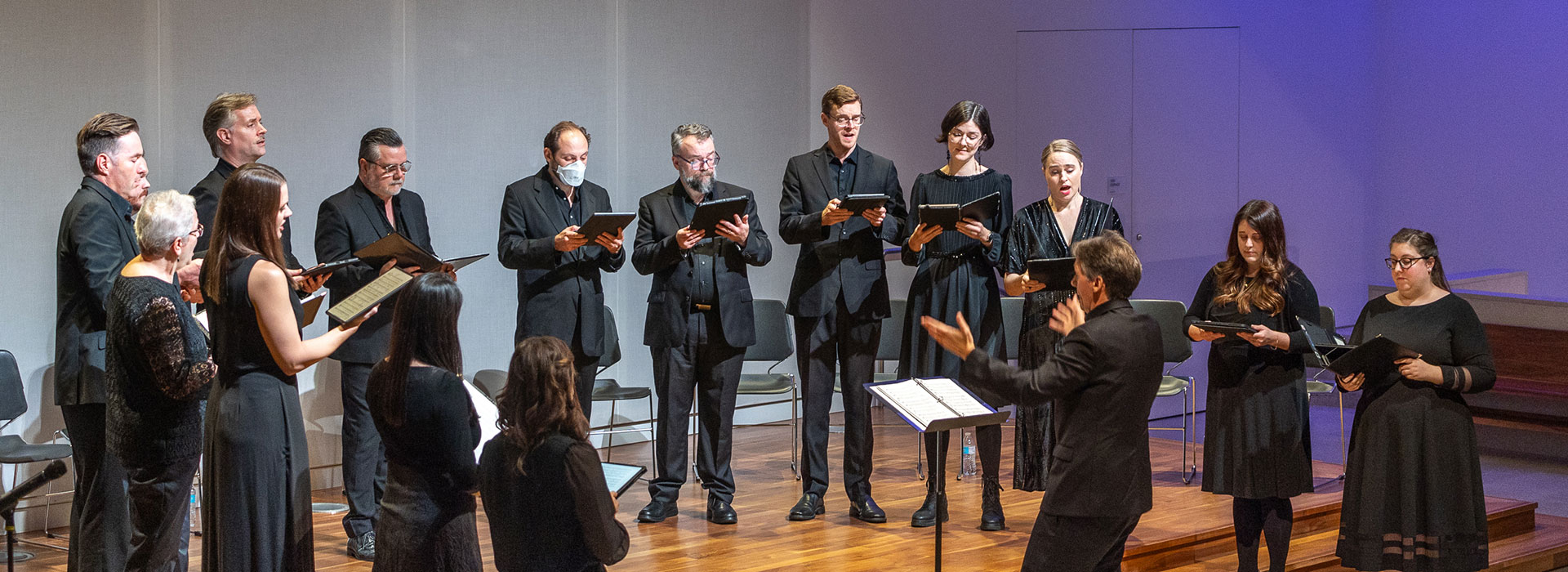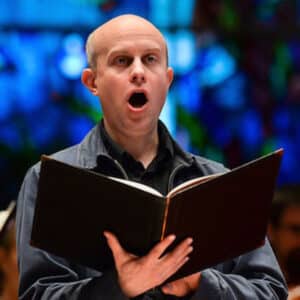
Vocal Polyphony
Heinrich Schütz & the German Motet
Date & Location
Selections
from Cantiones Sacrae (1625) and Geistliche Chormusik (1648)
Chamber Series
Heinrich Schütz was arguably the foremost composer of the early-baroque German motet and the most important German composer before J.S. Bach. After three years of study in Venice with the great Giovanni Gabrieli, Schütz brought early Italian baroque style to German-speaking churches. Vocalists of the Washington Bach Consort under the direction of Dana Marsh will delve into Schütz’s finest collections: first, the incomparable Cantiones Sacrae—a cycle of motets with an entirely unique musical language—not only when compared with other composers, but as Joshua Rifkin has put it, even when compared with any other collection of Schütz’s own work during his lifetime. Schütz’s Geistliche Chormusik offers some of his most richly popular motets, which reveal the composer at the top of his craft.
...Chamber Series
Heinrich Schütz was arguably the foremost composer of the early-baroque German motet and the most important German composer before J.S. Bach. After three years of study in Venice with the great Giovanni Gabrieli, Schütz brought early Italian baroque style to German-speaking churches. Vocalists of the Washington Bach Consort under the direction of Dana Marsh will delve into Schütz’s finest collections: first, the incomparable Cantiones Sacrae—a cycle of motets with an entirely unique musical language—not only when compared with other composers, but as Joshua Rifkin has put it, even when compared with any other collection of Schütz’s own work during his lifetime. Schütz’s Geistliche Chormusik offers some of his most richly popular motets, which reveal the composer at the top of his craft.
Running Time: Approximately 75 minutes without intermission
Margarita Brose and Chuck Reifel & Janie Kinney, underwriters
Musicians
-

-

-
 Carolyn Wise
soprano
Carolyn Wise
soprano
-

-

-

-

-

-

-
 Mark Duer
bass
Mark Duer
bass
-

-
